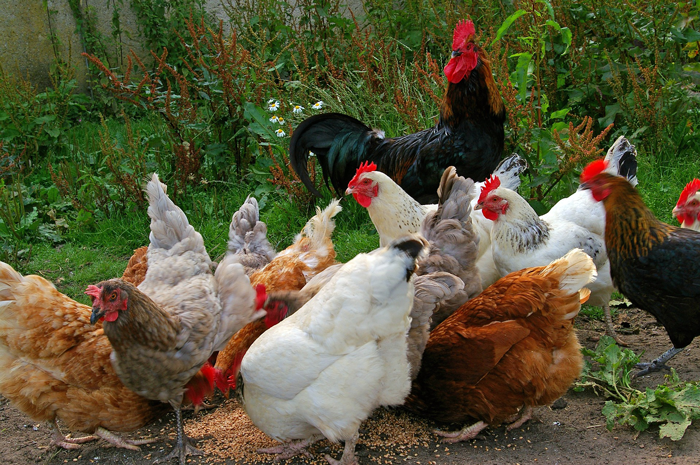
Indigenous chickens need enough feed to grow and lay eggs.
Indigenous local chicken provide a cheap source of food and easy cash to the family for most smallholder farmers in Kenya. Local chicken are readily available for most rural people, they do well in most areas and do not cost much to keep. They also have tasty meat and eggs.
Local chickens do very well if they are given extra feed, housed well and kept in a disease-free environment.
Feeding
Chickens need enough feed to grow and lay eggs. A majority of smallholder farmers usually leave the chicken to find their own feed by allowing them to move freely. In case you are interested in rearing indigenous poultry you should give extra feed in form of kitchen leftovers including fruit and vegetable waste, cereal grains and by-products, green leaves, fish meal (Omena), tubers and roots, insects, termites, worms and brewers waste. Ensure that you provide adequate clean water and feed the birds in a clean dry place.
Housing
Proper housing in chicken should keep the birds, especially young chickens, secure from wild animals, hawks and theft. It should be spacious, well lit and airy, have perches, be easy to clean and maintain.
Control of diseases
To stop the birds from getting sick: clean the chicken house frequently to maintain hygiene. Vaccinate chickens against Newcastle disease, fowl typhoid and fowl pox. Deworm growers to control internal parasites and dust the birds to control external parasites.
READ ALSO: Uasin Gishu Based CBO abandons crop farming for chicken rearing
READ ALSO: Kienyeji chicken firm with ready market looking for trainees
READ ALSO: Newcastle resistant chicken breed, which also produces more eggs now in the market
Breeding
To improve your birds: use good cocks and hens for breeding. Change breeding cocks at least once every year to avoid inbreeding and keep 1 cock for every 20 hens.
If all the above is adhered to then a farmer will ensure his/her indigenous chicken multiply faster leading to increase in body weight, improved egg weight and taste , more eggs for hatching, increased profits from their sale and consumption and finally more income.
According to the Kenya Agricultural Research and Livestock Organization (KALRO), a fully grown kienyeji cockerel costs Sh1, 000 while a hen costs Sh 600 although prices vary depending on the location.
















Comments powered by CComment